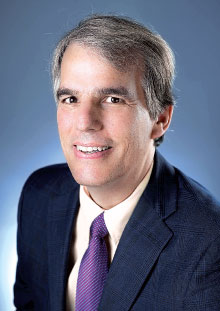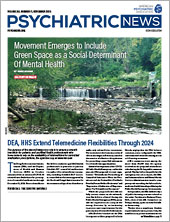Counselors, social workers, psychologists, and other community and social service workers have more than twice the risk of overdose death as employed individuals who do not work in health care, a
study in the
Annals of Internal Medicine has found. Other health workers with significantly higher risk of overdose death include registered nurses and health care support workers such as home health aides. However, the study found no increased risk for physicians (including psychiatrists), health technicians, and other treating and diagnosing health care workers.
Mark Olfson, M.D., M.P.H., the Elizabeth K. Dollard Professor of Psychiatry, Medicine and Law and a professor of epidemiology at Columbia University Medical Center, and colleagues examined data from 176,000 health workers and 1,662,000 non-health workers aged 26 years or older. Participants were surveyed in 2008 as part of the American Community Survey and followed for cause of death through 2019. Health workers were categorized as physicians; registered nurses; other treating or diagnosing health care workers; health technicians; health care support workers, including home health aides; and social or behavioral health workers, including social workers, counselors, psychologists, and other community and social service specialists.
Among all participants, 0.07% died of overdose during the 10-year follow-up. Annual age- and sex-standardized rates of drug overdose death per 100,000 health workers ranged from 2.3 for physicians to 15.5 for social or behavioral health workers. Compared with non-health workers, social or behavioral health workers had 2.55 times the risk of overdose death during the study period. Registered nurses and health care support workers had 2.22 and 1.60 times the risk of overdose death, respectively, compared with non-health workers.
“I was surprised that health care support workers were at such high risk of drug overdose death,” Olfson told Psychiatric News. “When you think of national patterns of who is at risk for drug overdose deaths, the group at highest risk is typically young White unemployed men. In this representative study of working American adults, however, health care support workers, a majority of whom are middle-aged women and many of whom are people of color, stood out as a high-risk group.”
Olfson added that health support workers, who frequently lift and move patients, have among the highest risks of injuries of all occupations, even higher than construction workers, according to federal statistics.
“Because painful musculoskeletal injuries can lead to opioid prescriptions and sometimes opioid misuse, enhanced training of health care support workers in safe patient lifting and transport techniques with adequate co-worker assistance could contribute to reducing upstream risks of opioid misuse and related complications,” Olfson said.
The researchers noted that the higher risk of overdose death among registered nurses aligns with prior studies that suggest that nurses have a high rate of prescription drug misuse, which may be an indicator for substance use disorder and overdose.
“In their daily work, nurses routinely encounter controlled prescription drugs. Nurses who have greater exposure to these drugs at work are more likely to misuse them,” Olfson explained. “For this reason, one strategy for reducing overdose risk among nurses might involve enforcing greater oversight concerning administration and disposal of controlled prescription drugs.”
Olfson and colleagues noted, however, that the increased risk of overdose death in social and behavioral health workers had not been previously described in other research and is unlikely to be explained by physical pain or occupational access to controlled substances.
“Nevertheless, high rates of drug overdose deaths among social or behavioral health workers underscore a need to improve detection and management of drug use disorders in this health care worker sector,” they wrote.
Olfson noted two challenges that health workers who have substance use disorder (SUD) may face.
“They may become too scared and too embarrassed to seek help. They may also become worried about confidentiality and think that if they seek help, they will lose their license or job,” he said.
Olfson said that specialized programs for health care workers with SUD can help to reduce these barriers to care and contribute to earlier treatment. However, most of these programs have been limited to physicians and have not reached the health workers who are most vulnerable to overdose death, he said.
“New programmatic efforts are needed to reduce health care worker stress; prevent burnout; identify health care workers who are using drugs of abuse; and, as needed, increase their access to confidential substance use evaluation and treatment,” Olfson said. “Psychoeducation could help health care workers identify warning signs of problematic substance use in themselves and in their co-workers. In addition to these general measures, consideration should be given to employee-specific strategies.”
This study was supported by a National Heart, Lung, and Blood Institute interagency agreement with the U.S. Census Bureau. ■

